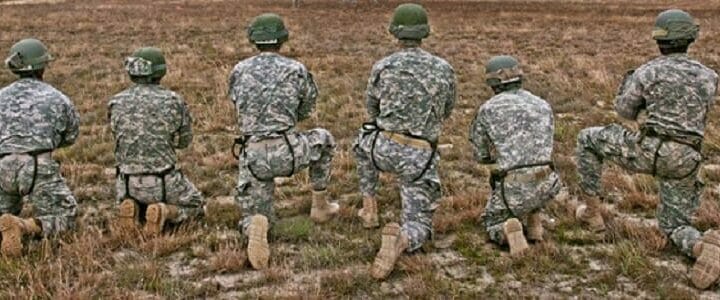There is no doubt these are challenging times in our world right now. And if you are transitioning out of the military anytime soon, you may be wondering if you will be able to get a job in this current difficult business environment. But transitioning servicemembers and veterans have an advantage over their non-military counterparts – military-learned skills that are in high demand.
Soft Skills
These are some of the most sought-after skills employers seek out. but struggle to find in non-military applicants. Why? Because these skills are hard to teach and not offered in college courses. But they are skills that are very marketable, giving veterans a leg up when it comes to applying for a job. It’s not enough to tell an employer you have soft skills, however, or to assume that you do. Here are three specific skills that are particularly beneficial to any employer:
- Communication
- Flexibility
- Teamwork
Let’s look at each one in more detail.
Communication
You may wonder why this skill is on this list. After all, don’t people already know how to talk to each other? And the answer in the business world, is no – many do not. Veterans are uniquely qualified in that they have been taught not only how to talk to subordinates (and get them to do what they request), but also how to talk to superiors, which is a totally different communication skill set. The first one is more of a transmit mode, whereas the second one is more of a receive mode. Supervisors in the business world appreciate those possessing both modes of speaking.
And most veterans also know how to communicate in written form also. Employers often will reward those employees who can write in a clear, goal-oriented style of writing that focuses on an objective. Not unlike much of the writing done in the military, from writing performance reports on subordinates, to writing the steps on how to do something like operate, maintain and troubleshoot a piece of equipment new to the unit. Make sure you demonstrate these communication skills in your resume with specific examples of how you lead your team with a mission or presented and solved a problem for your leadership.
Flexibility
There is probably no other segment of people other than veterans who know better that even the best laid plans don’t always pan out. That is why we were taught to always have a Plan B in our hip pocket (and sometimes a Plan C). I know I have had to improvise, adapt and overcome more times than I care to remember! Having that Plan B ready to go has saved my behind more than once. Employees that have not been through these rigors tend to get stressed out when things go south; it is at that point when they make bad choices and things start to break down. Veterans just roll with the punches and drive on.
Teamwork
Whether operating as a member of a team or leading one (and having the ability to move back and forth between the two), most recent college graduates do not have this skill at the breadth and depth as do veterans. In many of the austere environments we were forced to work in, functioning as one team was essential to keep from getting a fellow member injured or worse yet, killed. Knowing when to take the lead and when to follow are critical soft skills endeared in the business environment … but also something not commonly found.
Emphasizing soft skills acquired in the military can be a critical way to set yourself apart from other candidates.




